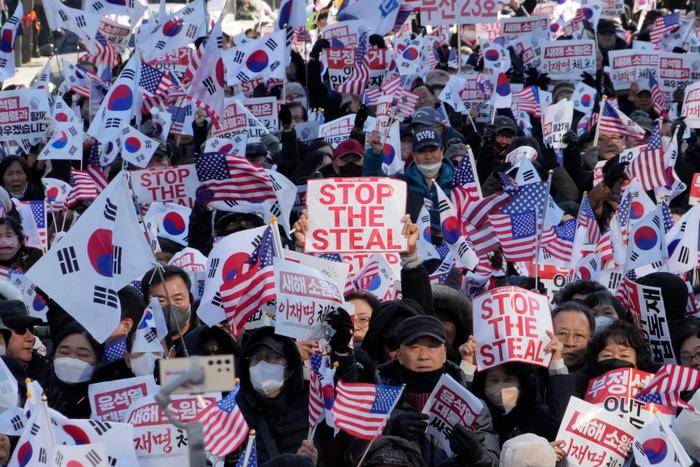South Korea's YouTube Channels: A Double-Edged Sword in the Country's Political Crisis
South Korea is currently embroiled in a deepening political crisis, with protests and demonstrations taking place across the country. At the heart of this crisis is a growing divide between the government and the opposition, with both sides accusing each other of corruption and abuse of power.
In this highly charged environment, YouTube channels have emerged as a significant player in the country's political landscape. These channels, which range from news analysis and commentary to satire and entertainment, have attracted millions of viewers and have become a major source of information and influence for many South Koreans.
However, critics argue that these YouTube channels are exacerbating the country's political crisis by spreading misinformation, fueling polarization, and undermining trust in institutions. Many of these channels are seen as being closely aligned with either the government or the opposition, and are accused of promoting biased and partisan agendas.
One of the most popular YouTube channels in South Korea is run by a conservative commentator who has been accused of spreading misinformation and conspiracy theories about the opposition. The channel has attracted millions of viewers and has been praised by government supporters for its "telling it like it is" style.
However, critics argue that the channel's content is often inflammatory and divisive, and has contributed to the growing polarization of South Korean society. They point to instances where the channel has promoted conspiracy theories about the opposition, and has accused opposition leaders of being "traitors" and "communists".
On the other hand, there are also YouTube channels that are seen as being closely aligned with the opposition. These channels often feature commentary and analysis that is critical of the government, and have attracted a large following among opposition supporters.
However, critics argue that these channels are also guilty of promoting biased and partisan agendas, and have contributed to the growing polarization of South Korean society. They point to instances where these channels have promoted conspiracy theories about the government, and have accused government officials of being "corrupt" and "authoritarian".
The impact of these YouTube channels on South Korean politics cannot be overstated. They have become a major source of information and influence for many South Koreans, and have played a significant role in shaping public opinion and discourse.
However, the spread of misinformation and the promotion of biased and partisan agendas by these channels are also major concerns. They have contributed to the growing polarization of South Korean society, and have undermined trust in institutions and the media.
To address these concerns, there are calls for greater regulation of YouTube channels in South Korea. Some argue that the government should take steps to crack down on channels that promote misinformation and hate speech, while others argue that the platform should be left to self-regulate.
Ultimately, the impact of YouTube channels on South Korean politics will depend on how they are used and regulated. If they are used to promote misinformation and biased agendas, they will likely continue to exacerbate the country's political crisis. However, if they are used to promote fact-based reporting and nuanced analysis, they could play a positive role in shaping public discourse and promoting greater understanding and empathy.
- _Promoting Misinformation_: Many YouTube channels in South Korea have been accused of promoting misinformation and conspiracy theories about the government and the opposition.
- _Fueling Polarization_: The spread of misinformation and the promotion of biased and partisan agendas by YouTube channels have contributed to the growing polarization of South Korean society.
- _Undermining Trust_: The spread of misinformation and the promotion of biased and partisan agendas by YouTube channels have also undermined trust in institutions and the media.
- _Government Regulation_: Some argue that the government should take steps to crack down on YouTube channels that promote misinformation and hate speech.
- _Self-Regulation_: Others argue that the platform should be left to self-regulate, and that YouTube should take steps to promote fact-based reporting and nuanced analysis.
- _Positive Role_: If used to promote fact-based reporting and nuanced analysis, YouTube channels could play a positive role in shaping public discourse and promoting greater understanding and empathy.
- _Negative Role_: However, if used to promote misinformation and biased agendas, YouTube channels will likely continue to exacerbate the country's political crisis.




No comments yet
Be the first to share your thoughts!